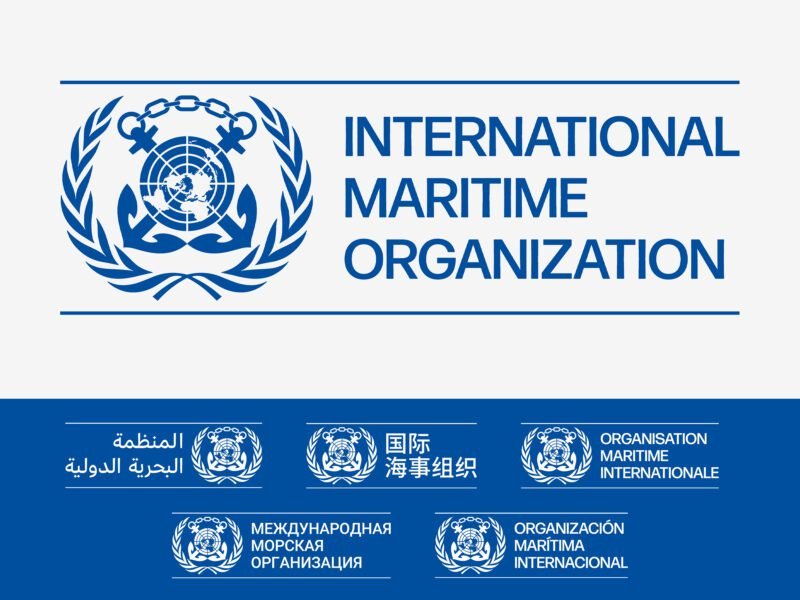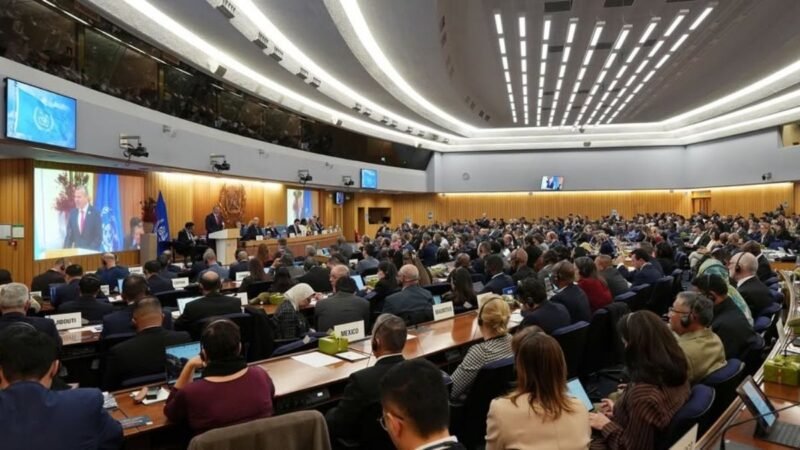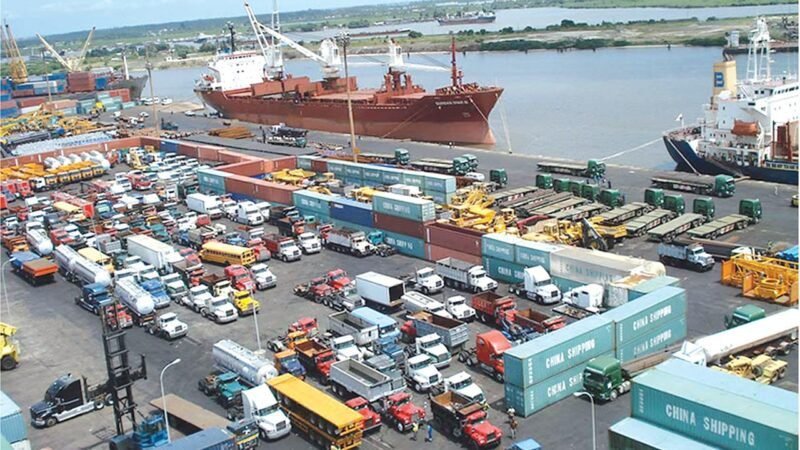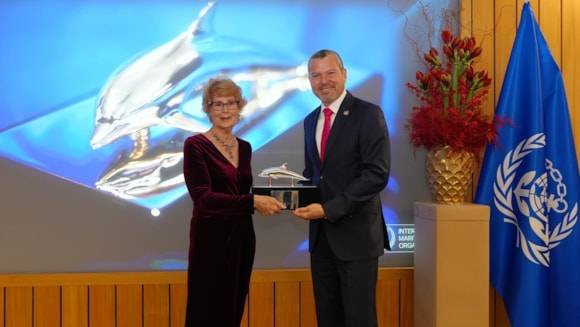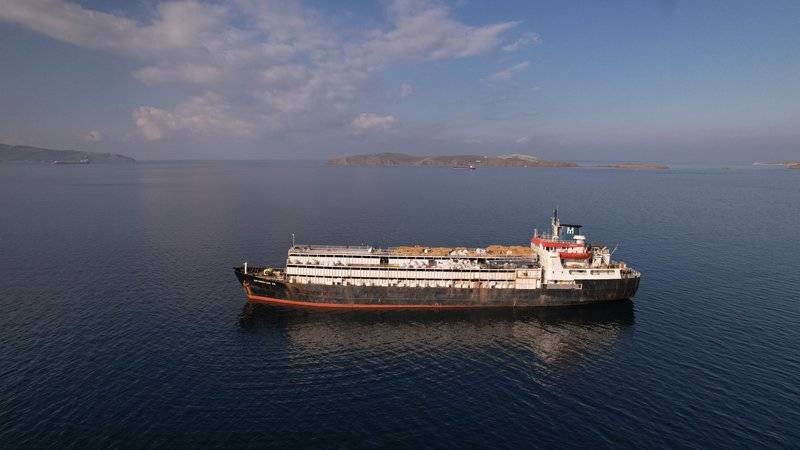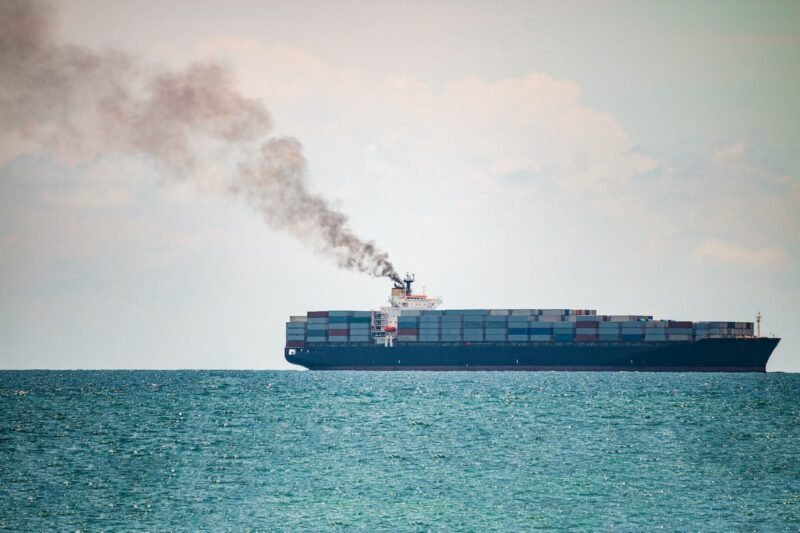Following Stories compiled in this News Digest for the week from 03 Oct 2022 to 09 Oct 2022 in descending order:
- Synergy Marine Ship Management Offers Equity To Employees
- Angelicoussis Shipping Group Implements Onboard Digital Health Care
- Hydrogen Fuel Cells to Power Marine Vessel Energy Platform
- Investigation of Nord Stream Pipelines Strengthens Sabotage Suspicions
- Mission To Seafarers Maritime Art Prize Winners Announced
- Charity announces new neurodiversity survey for seafarers
- IMO and Commonwealth Secretariat join forces for sustainable maritime development
- End-to-end shipboard carbon capture initiative launched
- With pension scheme set to expire next month, Goa seafarers keep fingers crossed
- Transparency in Shipping’s Digital Age
- Thousands of seafarers will need training to handle new fuels
- Giant supertanker uses 9.8% less fuel thanks to 130-foot sails
- India: Port of Bhavnagar will play a big role in building self-reliant India, says PM Modi
- India’s first hovercraft decommissioned at Tamil Nadu Coast Guard station after 22 years, to be placed in Gujarat maritime museum
Synergy Marine Ship Management Offers Equity To Employees
09 Oct 2022
Captain Unni announced a new management structure for the 16-year-old company on Friday after global private investment firm Searchlight Capital Partners, L.P. said it bought a minority stake in Synergy Marine for an undisclosed amount. The new management structure, according to Captain Unni, aims to create “diversity in the thought process” to walk on the path of digitisation and decarbonisation, twin challenges facing the global shipping industry.

Synergy manages a fleet of some 500 vessels including the most complex LNG ships (including floating storage units), LPG carriers, 20,000 twenty-foot equivalent units (TEUs) plus container ships, as well as oil and chemical tankers, car carriers and bulk carriers, employing more than 18,000 seafarers, of which more than 80 per cent are Indian nationals. It runs 25 offices in 13 countries.
With a strong focus on crew wellbeing, digitalization and environmentally responsible policies, Synergy Marine is at the forefront of transforming the ship management industry.
The “concept” of making employers equity holders of his company has been on Captain Unni’s mind right from the time he started his venture after a successful career at sea during which he rose to command ships. Reference
Angelicoussis Shipping Group Implements Onboard Digital Health Care
09 Oct 2022
Angelicoussis Shipping Group shows interest in moving towards digitalization by implementing a 3-month pilot program of onboard crew medical care solution by MedAssist.Online. Being one of the leading shipping companies in the Greek maritime industry, Angelicoussis Shipping Group has a serious approach towards ingraining corporate social responsibility (CSR) within the company’s culture.

For Angelicoussis Shipping Group, crew healthcare is an inseparable part of CSR. As shipping drives 90% of worldwide trade, seafarers are the uncelebrated heroes of the global economy. Thus, an important part of Angelicoussis Shipping Group’s corporate culture is providing proper health care for vessel crew members.
MedAssist.Online tackles this challenge by providing approved medical solutions through “bringing the doctor to the vessel” when it is needed the most. MedAssist.Online offers medical care solutions that are affordable, reliable, and are able to operate at sea with low to zero bandwidth, increasing a company’s compliance with international standards.
This cooperation paves the way for the rest of the industry and highlights the importance of crew health and corporate social responsibility (CSR) for other Greek shipping companies. Reference
Hydrogen Fuel Cells to Power Marine Vessel Energy Platform
08 Oct 2022
Nuvera Fuel Cells and H2Boat are working together to develop a hydrogen-based zero-emission energy system for marine vessel uses as they look to add more sustainability to the industry.

Nurvera, which makes heavy-duty hydrogen fuel cell engines, is supplying an E-45 engine to H2Boat for integration into its HP Energy Pack. H2Boat plans to use the Nuvera E-Series fuel cell engines to expand its marine product line.
The use of hydrogen fuel cells in boats reduces exhaust emissions and other environmental impacts as well as lowers noise and vibrations associated with diesel-powered vessels.
Nuvera also says fuel cell engines can help vessel operators and marine equipment manufacturers comply with tightening emissions regulations.
The International Maritime Organization will begin requiring ship owners to report carbon intensity scores on a yearly basis beginning in 2023, as one example of the increased regulations. An artificial intelligence-based application from Bearing is among the technology that is helping vessel operators address those standards.
The Nuvera and H2Boat effort is on a smaller scale but still shows the desire to switch to cleaner fuel sources in the industry. H2Boat, which originally focused on the pleasure boat sector including motor boats and sailboats, says unlike boats with internal combustion engines, a fuel-cell electric boat can access marine-protected areas. Reference
Investigation of Nord Stream Pipelines Strengthens Sabotage Suspicions
07 Oct 2022
A crime scene investigation of the Nord Stream 1 and 2 gas pipelines from Russia to Europe has strengthened suspicions of “gross sabotage” involving detonations, Sweden’s Security Service said on Thursday.

Swedish and Danish authorities have been investigating four leaks from the pipelines in Swedish and Danish exclusive economic zones in the Baltic Sea since they were first spotted at the beginning of last week.
Europe, which is a facing an energy crisis in the aftermath of Russia’s invasion of Ukraine, is investigating what caused the damage as Moscow seeks to pin the blame on the West, suggesting the United States stood to gain.
Washington denies any involvement as a stand-off between Russia and European countries continues over supplies of gas that have stopped flowing or been put on hold as a result of the conflict in Ukraine.
The Nord Stream operators said this week they were unable to inspect the damaged sections because of restrictions imposed by Danish and Swedish authorities who had cordoned off the area.
The security service said there was extensive damage to the gas pipelines and they had retrieved some material from the site that would now be analyzed. The evidence “has strengthened the suspicions of gross sabotage,” they said.
Sweden’s Prosecution Authority said in a separate statement that the area, where gas spewed into the sea for almost a week, was no longer cordoned off.
Russia said on Thursday it had been informed via diplomatic channels that it was not able to join the investigation. Reference
Mission To Seafarers Maritime Art Prize Winners Announced
07 Oct 2022
MISSION to Seafarers Victoria has announced the winners of the 2022 MSC Maritime Art Prize and Exhibition. The maritime art exhibition is an annual art competition hosted at the heritage-listed mission building in Melbourne’s Docklands for more than 20 years.
Seventy artworks were shortlisted from a highly competitive field, including a greater number of interstate artists than in previous years.

The winner of the 2022 Mediterranean Shipping Company (MSC) Maritime Art Award ($15,000) was Melbourne-based artist Original Smith, who submitted See Forever the Sea, a mixed media work on aluminium panel.
The Best Traditional Maritime Art Award, sponsored by Port Phillip Sea Pilots ($5000) went to John Woodland, the artist behind The Apprentice, which used watercolour on paper.
The winner of the Runner-Up Award, sponsored by Nevile & Co ($2000) was Mia Laing, who painted Bounded by Sea using oil on canvas.
The Emerging Artist Award, sponsored by Gulf Agency Company ($1000) went to Simon Brown, the creator of Tides, an oil on linen piece. Reference
Charity announces new neurodiversity survey for seafarers
07 Oct 2022
NeurodiversAtSea, a seafarers’ neurodiversity charity, announced the launch of its first annual Neurodiversity Benchmark Survey. The survey aims to gather data in support of a maritime neurodiversity strategy.

According to chair and founder Dan Smith “the survey will identify the range and depth of neurodiversity in our profession and the challenges faced by neurodivergent seafarers. Uniquely, it will identify the scope of the opportunity to leverage neurodivergence within the industry.”
The resulting industry strategy will be published in the New Year and will be based on a corporate commitment. This will provide an actionable toolkit for employers to harness the benefits of a neurodiverse workforce, including methods and policy for managers, ashore and at sea.
It will also be grounded in evidence and best practices, seeking to develop metrics. Neurodiversity strategies are, according to Mr. Smith, well established in the City, where institutions now quantify the benefits of neurodiverse workforces, including nearly 50% higher productivity per neurodivergent worker.
Neurodiversity means embracing the full spectrum of talent at work. Seafarers are incredibly diverse, but our industry still has a huge opportunity both to acquire and develop neurodiverse talent, and to do the right thing by neurodivergent seafarers. Reference
IMO and Commonwealth Secretariat join forces for sustainable maritime development
07 Oct 2022
Newly-signed partnership will promote sustainable maritime transport through joint activities in selected countries.

The Secretary-General of the International Maritime Organization (IMO) has signed a partnership agreement with the Commonwealth Secretariat, under which both organisations commit to strengthening the maritime and port sectors in selected developing countries through activities which will promote and facilitate the adoption of sustainable maritime transport systems and practices.
A Memorandum of Understanding (MoU) was signed on Thursday (29 September) by IMO Secretary-General Kitack Lim and Commonwealth Secretary-General, the Rt Hon Patricia Scotland KC.
Commonwealth countries who are Member States of IMO will benefit from joint capacity-building activities between the two intergovernmental organisations.
Under the agreement, IMO and the Commonwealth Secretariat intend to work together to support knowledge sharing, intergovernmental cooperation, capacity-building and joint resource mobilization.
Specific activities will be developed to address marine environment protection and climate change, maritime safety, maritime security, maritime legislation; and maritime transport facilitation in support of global and regional trade flows. Reference
End-to-end shipboard carbon capture initiative launched
06 Oct 2022
Industry partners have begun the first stage of a three-phase project to demonstrate carbon capture at scale onboard a vessel.

The Global Centre for Maritime Decarbonisation (GCMD), the Oil and Gas Climate Initiative (OGCI) and Stena Bulk launched the project together with Alfa Laval, the ABS, Deltamarin and TNO.
The project has been named REMARCCABLE (Realising Maritime Carbon Capture to demonstrate the Ability to Lower Emissions) and will roll out across three phases over two years.
Phase one – conceptual design and front-end engineering design study for completion Q1 2023. Phase two – engineering, procurement and construction of a prototype shipboard carbon capture system. Phase three – integration of the carbon capture system onboard MR tanker Stena Impero and conducting sea trials of over 500 hours of carbon capture and offloading of liquid CO2 along a 10-day deep-sea route to an already identified CO2 consumer. Progress from one phase to the next will depend on a review of the previous phase and support from the various partners.
Carbon capture is a means of recovering carbon emissions to meet decarbonisation targets while development of low- and zero-carbon fuels and the related infrastructure continues. “Projections indicate that 85% of the fuel mix for two-stroke engines will remain fossil-fuel based by 2030 and 34% by 2050. Shipboard carbon capture can help reduce GHG emissions of current vessels, with the possibility of recycling captured CO2 to produce alternative fuels,” said the partners. Reference
With pension scheme set to expire next month, Goa seafarers keep fingers crossed
06 Oct 2022
With the pension scheme for the retired seafarers and widows set to expire in November, seafarers keep their fingers crossed over the fate of the scheme, throwing up questions about whether the government would honour its promise to make it permanent or give it another extension.

Sources in the know, however, said that the office of the NRI Commissioner has submitted the file to the Home department to make the Goa Welfare/Pension scheme, 2021 permanent.
Sources further informed that State Home Secretary Sanjit Rodrigues is seized of the matter and is likely to hold an exercise with representatives of seafarers to discuss their issues.
Sources stated that Sanjit is likely to discuss issues involving the deduction of funds from the seafarers by the shipping companies and the unions and whether the seafaring community is provided with welfare benefits.
The Goan understands that after the NRI Affairs office submitted the file to the Home department to make the scheme permanent, the government is toying with the idea of disbursing the pension through the Social Welfare department. Reference
Transparency in Shipping’s Digital Age
05 Oct 2022
Digitalization may prove one of the maritime industry’s most effective tools to face multiple challenges posed by decarbonization, recruitment and even diversity.

As co-CEO of leading satellite communications and digital solutions provider Tototheo Maritime, Despina Panayiotou Theodosiou knows all about the impact connectivity has on commercial ship efficiency, but her mind is also constantly probing for links between progressive technology and Environmental, Social and Governance concerns.
In shipping, the fear of job losses can often top the agenda when new technologies are introduced, “without having a parallel discussion about the new jobs and opportunities,” observes Theodosiou.
Inmarsat recently reported a 70 percent increase in data usage by ships over a 12-month period, with around 70-80 percent of current consumption attributable to seafarers. This is a measure of changing expectations of the life at sea, says Theodosiou, but also an indicator that seafarers are ready and willing to engage with technology, rather than resistant to having it imposed upon them.
That engagement could easily focus on the digitalization and data-driven decision-making that optimizes ship sustainability and allows shipowners to lead on ESG, rather than being portrayed as only responding when regulation demands it, or under pressure from society or investors.
Based on generational progression in IT literacy, future seafarers and shore-based personnel are likely to have more transferrable skillsets, creating more opportunities for mobility in an industry which thinks of itself as global but often provides limited scope for progression.
Far from resisting, the talent of tomorrow will also expect higher levels of automation.
If digitalization is shaping the future of maritime employment, Theodosiou also believes action is needed to support its usefulness to shipping personnel today. Reference
Thousands of seafarers will need training to handle new fuels
04 Oct 2022
Hundreds of thousands of seafarers will require some type of new training by 2050 to be able to handle fuels such as ammonia, hydrogen or methanol and a significant number by 2030, initial findings of a massive study commissioned by the International Chamber of Shipping (ICS) show.

The research study will attempt to quantify the scale of the challenge of upskilling and retraining the existing maritime workforce to handle the new fuels and provide an overview of what will this entail in terms of skills, training, and safety.
The study is being carried out by the classification society DNV on behalf of a Just Transition Task Force launched by the ICS at COP26 in Glasgow in 2021. The task force comprises ICS, ITF, and key UN agencies including IMO and ILO. The group is looking at ways of supporting seafarers in making the shift from high to low-carbon careers.
Platten insists that new training programs, standards and courses need to be created for seafarers to handle low-carbon fuels and service zero-emission vessels safely.
Yesterday’s technologies and set of skills in the maritime industry will need a massive upgrade if the sector wants to move forward with the energy transition and decarbonization of the global economy.
Moving toward greener energy sources that are likely to be more complex to handle, as would be the case with hydrogen and ammonia, as well as a greater shift toward digitalized operations, will require massive investment in training and education to acquire a new set of skills related to decarbonization issues. Reference
Giant supertanker uses 9.8% less fuel thanks to 130-foot sails
04 Oct 2022
As the shipping industry moves to decarbonize, huge sails could be making a comeback. The China Merchant Energy Shipping company (CMES) has taken delivery of a new supertanker, whose four large sails will cut down average fuel consumption by nearly 10%.
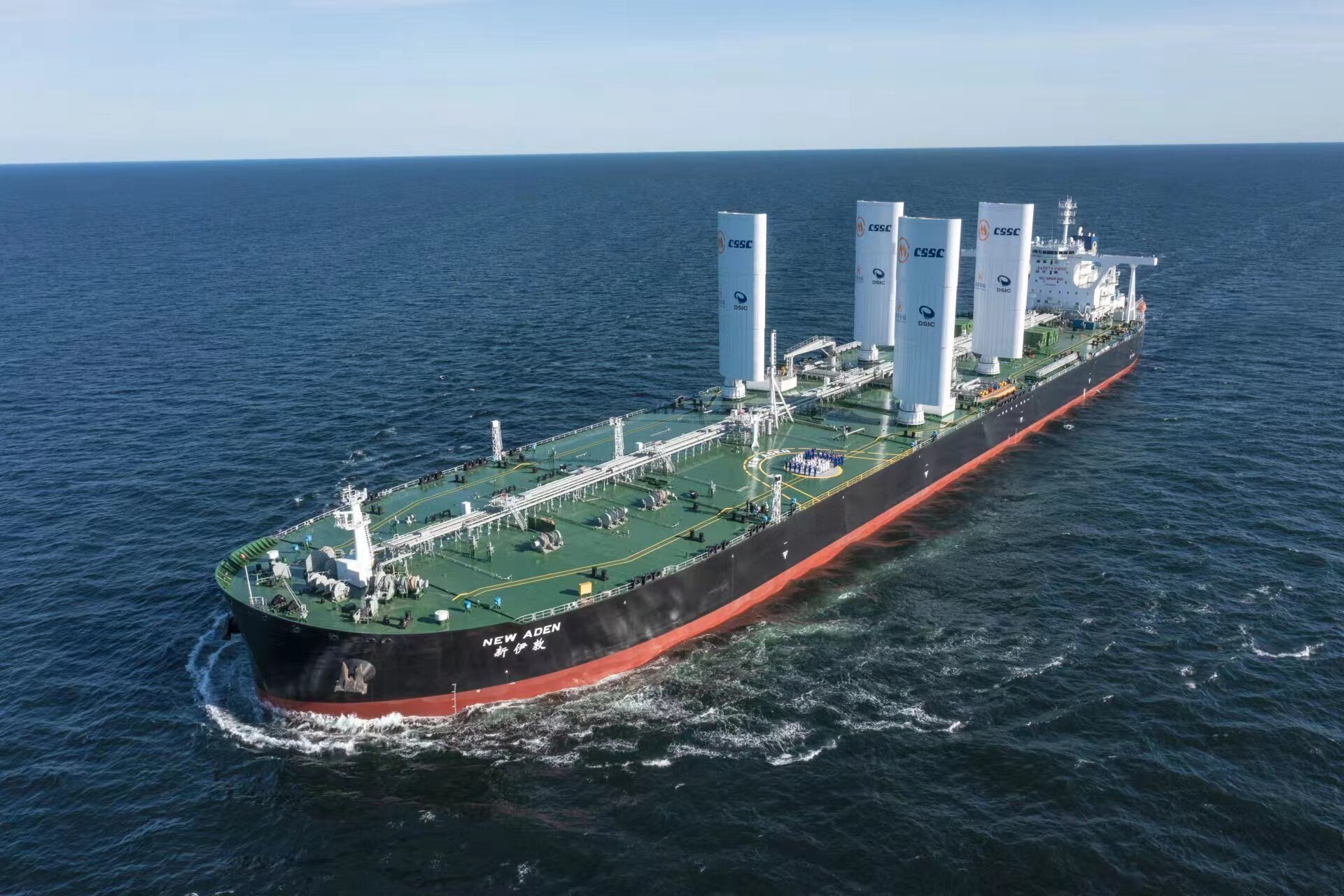
Sails, of course, were the primary source of power for large ships for thousands of years. Then German inventor Rudolf Diesel got his first engine up and running in 1897, and the first diesel-powered ships took to the water in 1903.
Sails, however, are very well understood, and for at least 10 years we’ve been seeing concepts and plans to bring large airfoils back to the cargo and passenger shipping industries.
The M/V “New Aden” is a 333-meter (1,093-ft) supertanker in the “very large crude carrier” class. Launched on September 24, this colossus runs a relatively modest, but groundbreaking wind power system. Four retractable sails, each rising 40 m (130 ft) from the deck and presenting a 1,200-sq-m (~13,000-sq-ft) surface, are mounted near the middle of the long deck.
These lightweight, corrosion-resistant carbon fiber composite blades can be raised or lowered at the touch of a button. An “Aerofoil Sails Intelligent Control” system is designed to constantly monitor the prevailing conditions, as well as navigation data, and continually adjust the angle of the sails to make maximal use of available wind.
As a relatively small implementation of the auto-sailing concept, this system isn’t designed to be the primary driver. The ship will still burn lots of diesel. But on an example shipping route between the Middle East and Far East, it’s expected to reduce average fuel consumption by more than 9.8%, saving an estimated 2,900 tons of carbon dioxide emissions each trip. Reference
India: Port of Bhavnagar will play a big role in building self-reliant India, says PM Modi
03 Oct 2022
Prime Minister Narendra Modi said the port of Bhavnagar will play a big role in building a self-reliant India and hundreds of new employment opportunities will be created in Bhavnagar following the expansion of warehousing, transportation and logistics business.

The PM was addressing a rally at Javahar Ground in Bhavnagar after inaugurating and laying the foundation stone for various infrastructure projects of Amreli, Bhavnagar and Botad districts worth over 5,200 crore rupees at Bhavnagar. This included laying the foundation stone for World’s first CNG Terminal, inauguration of Regional Science centre at Bhavnagar.
The PM said, government has made sincere efforts to make Gujarat’s coastline the gateway to India’s prosperity since the last two decades. He said that Bhavnagar has emerged as a centre for port-led development. Due to the existing infrastructure at Alang Ship Recycling Yard, wide opportunities lie ahead for Bhavnagar in the Vehicle Scrapping and container manufacturing sector. He said Bhavnagar will also be benefited by the huge investments coming in Dholera smart city.
Mr. Modi said Gujarat coast line is playing a big role in the country’s import-export besides offering employment to lakhs of people. He said that the government of Gujarat is giving highest priority for the welfare of fishermen and farmers. From building connectivity to ports, developing sea transport routes, the government is working to strengthen the coastal ecosystem of the state. Reference
India’s first hovercraft decommissioned at Tamil Nadu Coast Guard station after 22 years, to be placed in Gujarat maritime museum
03 Oct 2022
India’s first air cushion vehicle or hovercraft was decommissioned on Saturday after 22 years of service. The ceremony took place at the Coast Guard Station in Tamil Nadu’s Mandapam. According to ICG officials the vehicle will now be placed at the National Maritime Heritage Centre in Gujarat’s Lothal.

Hovercrafts are used extensively in disaster relief efforts, and for military and surveillance applications. Such vehicles use blowers to produce a large volume of air below the hull – an air ‘cushion’ of sorts – that is slightly above the atmospheric pressure. This in turn causes ACVs to ‘float’ above the surface. The vehicles are capable of travelling over land, water mud, ice and other surfaces.
The Centre had announced plans to set up a museum dedicated to the country’s 5,000-year maritime history in Lothal some time earlier. Reference
Note: All above news items compiled in this digest should be considered as news in brief. For detailed news, please refer to reference link, mentioned with each item.
Share it now






